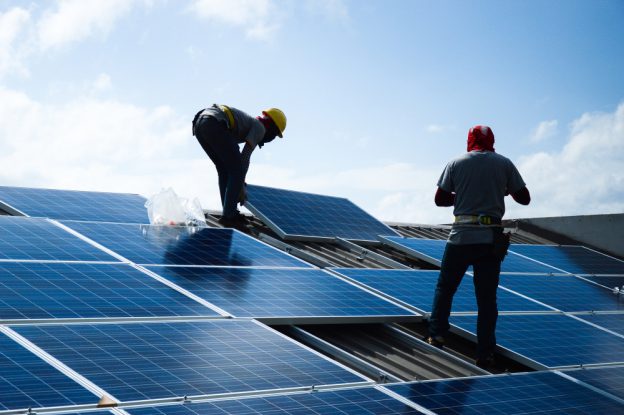The Total Overview to Solar Energy Installment: Save Money and Go Green
Checking out the subtleties of solar energy installment discloses a multifaceted approach to both expense financial savings and ecological duty. Home owners are significantly considering solar energy not only as a practical option however as a calculated financial investment that can produce considerable long-lasting advantages. The process involves cautious factor to consider of different elements, consisting of system option and installation procedures. Understanding these elements is essential for optimizing effectiveness and cost savings. What certain actions should one take to make sure a successful transition to solar energy, and how can financial incentives further improve this endeavor?
Benefits of Solar Power
The expanding fostering of solar energy reflects a substantial shift towards sustainability and environmental duty. Among the key advantages of solar power is its capability to minimize dependence on fossil fuels, resulting in decreased greenhouse gas exhausts. By utilizing the sunlight's power, individuals and services can contribute to a cleaner atmosphere and mitigate the adverse effects of environment adjustment.
Additionally, solar power can bring about considerable economic cost savings. Once mounted, solar panels dramatically reduced electricity expenses, as they create energy from a sustainable source. Numerous federal governments also supply rewards, discounts, and tax obligation credit histories to motivate solar fostering, further boosting economic stability.
An additional notable benefit is power freedom. Solar energy systems enable home owners and companies to produce their own electricity, lowering susceptability to rising and fall power prices and supply interruptions. Additionally, solar energy systems need very little upkeep, translating to reduced long-lasting functional prices.
Selecting the Right Solar System

Solar systems differ considerably in cost depending on their type, size, and effectiveness. Take into consideration possible financing options such as loans, leases, or power purchase arrangements (PPAs) that may relieve upfront prices.
Offered room is one more important factor. Analyze your roofing system's positioning, angle, and shading, as these aspects can impact photovoltaic panel performance. If roof space is minimal or improper, ground-mounted systems may be a feasible choice.
It's important to conduct comprehensive study to comprehend the particular rewards available in your location, as they can differ commonly. Consulting with a solar setup expert can assist you navigate these alternatives successfully, ensuring you optimize your savings while adding to a much more lasting energy future.
Maintaining Your Solar System
Effective upkeep is critical for making certain the longevity and optimum efficiency of your solar power system. Routine upkeep can aid stop minor problems from rising into expensive repairs and guarantee optimal power performance.
Begin with routine evaluations of your solar panels, ideally every 6 months. Search for dirt, debris, or any kind of indications of deterioration. best solar energy company in fort lauderdale. Cleaning the panels, particularly in areas susceptible to dust or bird droppings, can dramatically improve energy manufacturing. Make use of a soft brush and mild detergent to stay clear of harming the surface area.
Following, monitor the Website inverter. This part converts solar power into usable electrical energy and ought to be inspected monthly. Most contemporary inverters have keeping track of systems that alert you to efficiency concerns, permitting timely intervention.
Additionally, check the electrical wiring and links for any signs of deterioration or damages, as these can bring about decreased effectiveness or system failure. Take into consideration specialist maintenance services each year for a thorough exam.
Final Thought
In verdict, the adoption of solar power offers significant benefits, including lowered electrical power costs and a favorable environmental effect. Mindful consideration in picking the suitable solar system, paired with a clear understanding of the installment process, improves the total experience. Financial rewards and regular upkeep even more add to the long-term benefits of solar power. Ultimately, accepting solar innovation represents a crucial step towards sustainability and power self-reliance, fostering a greener future for all.